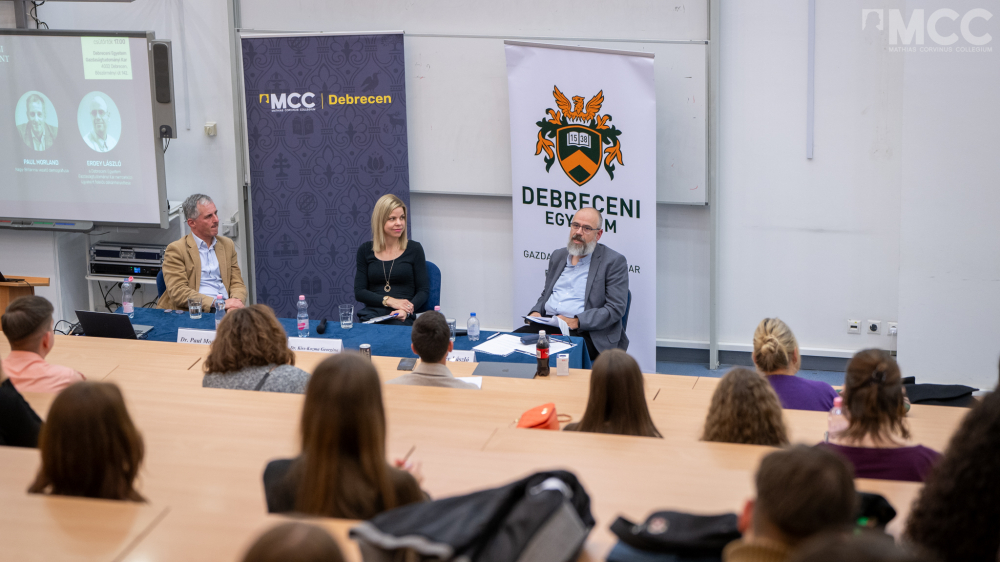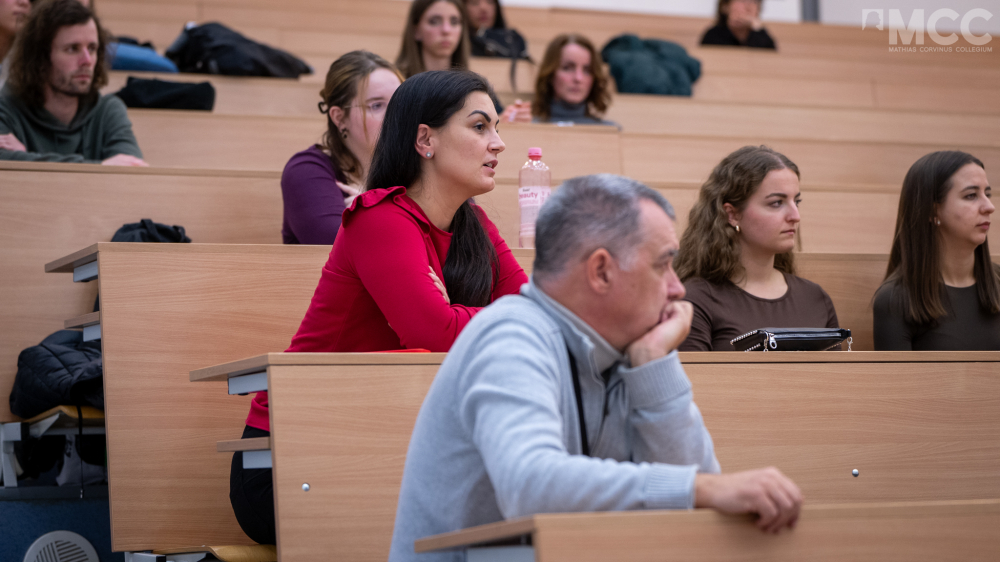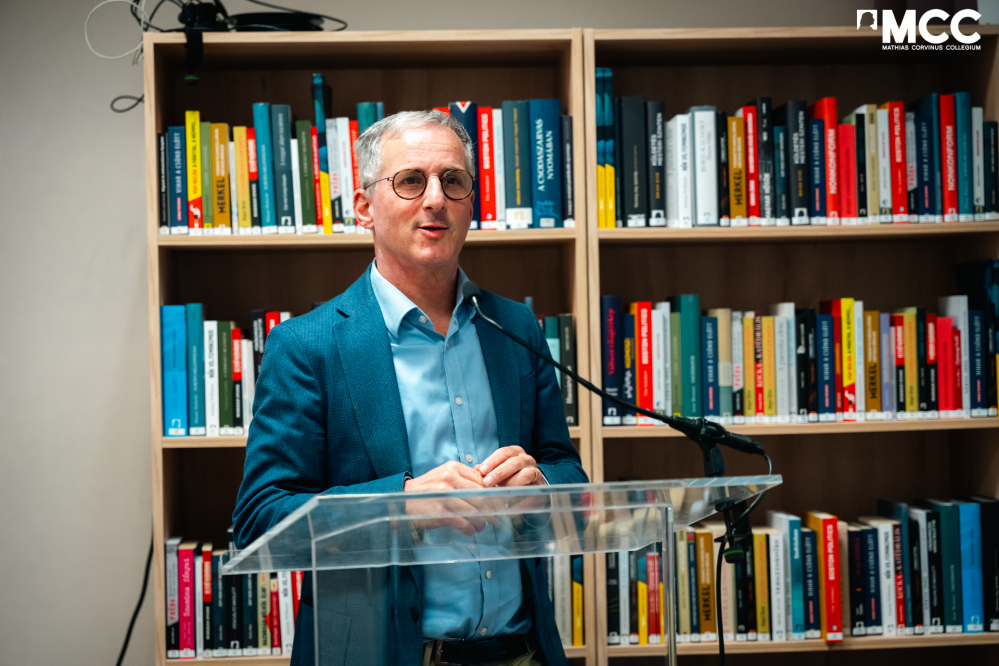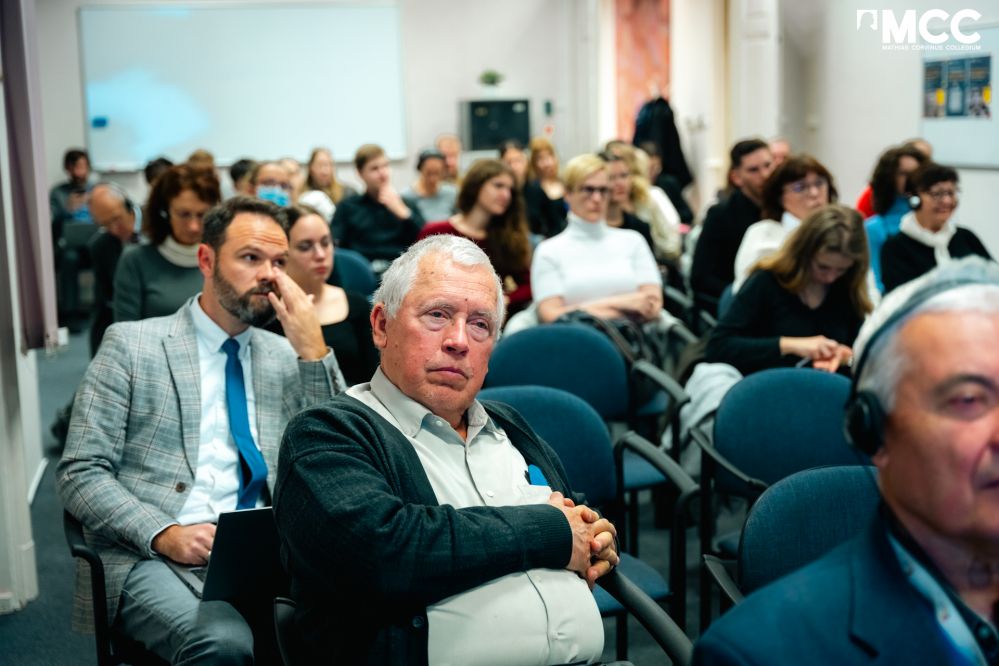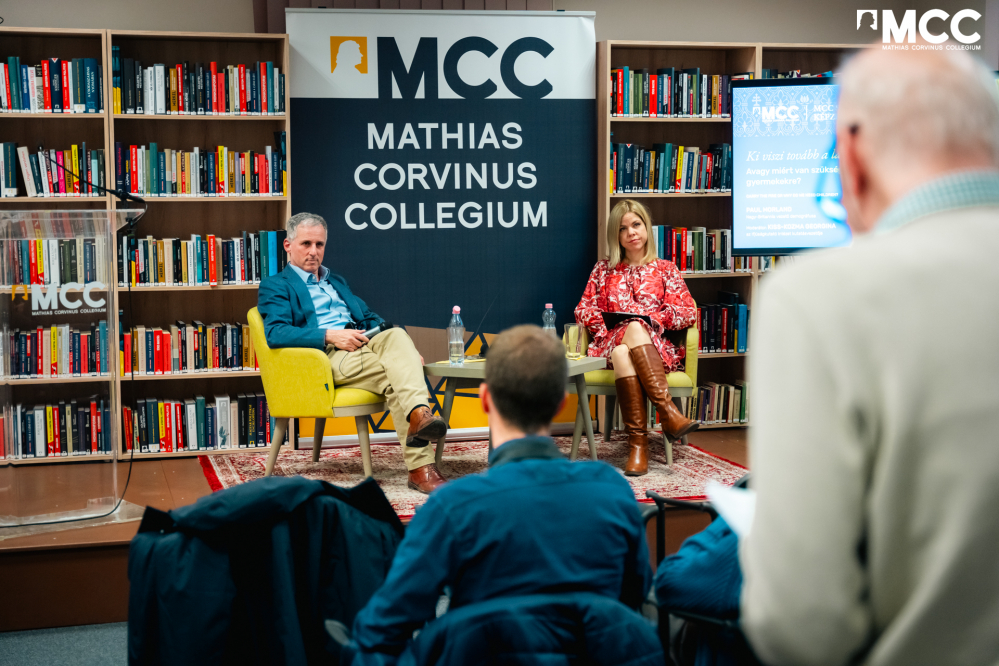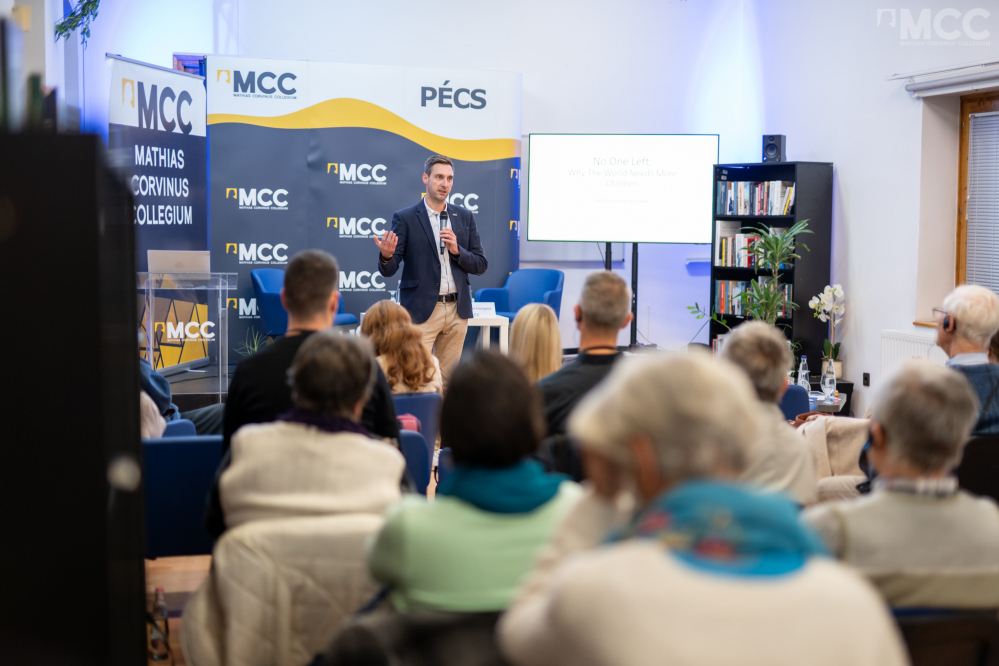Leading UK demography expert, Paul Morland, an associate research fellow at the University of London and a senior member at St. Antony's Collage, Oxford University, visited Hungary last week at the invitation of the Youth Research Institute.
In recent years, Dr Morland has given high-profile interviews to newspapers and magazines such as the Financial Times, the Sunday Times, The Telegraph, The Toronto Globe, Mail, Der Spiegel and the Jerusalem Post. His books have been translated into nine languages. His lectures focus on the power of people to shape history.
At MCC's Pécs and Szeged centres and at the University of Debrecen, Youth Research Institute Head of Research Georgina Kiss-Kozma spoke to him about the unfolding global demographic crisis. In Debrecen, Dr. László Erdey, Vice-Dean for International Affairs at the Faculty of Economics, joined the panel discussion.
The discussions centred around the problem of too few children being born worldwide. Only some parts of Africa are expected to see further population growth, while in most countries the birth rate is falling. Should this trend continue, ageing societies will have fewer and fewer people of working age for every one over 65, leading to serious economic problems and rising public debt in the long term.
Dr Morland’s research refutes the most common arguments against having children, such as the problem of overpopulation, in relation to which he said that the numbers marking a sustainable population are not set in stone. For example, agricultural research and development could easily help increase food production in order to sustain growing populations, however, technological innovation requires vibrant societies with an abundance of educated, young people. He explained that mass immigration is not a long-term solution for shrinking populations, as fertility rates are falling in migrant sending countries as well. As for the rate of technological progress, he stressed that we cannot expect rapid advances in AI to replace in the short term the work of doctors and nurses, for example. In relation to objections raised by feminism, he argued that women should be supported to flourish in their careers and motherhood at the same time.
Paul Morland gave four lectures this week (Budapest, Pécs, Szeged, Debrecen), where he said that Hungary’s family policy can be a positive example for all European countries today, and that the Hungarian government is one of a few around the world that take this issue seriously.



